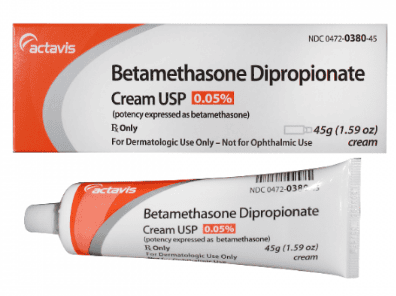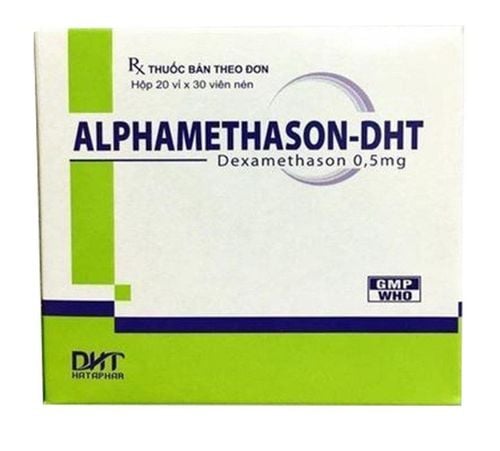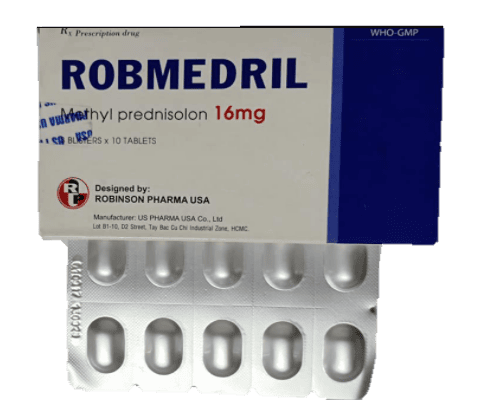This is an automatically translated article.
Medrol drug, also known as methylprednisolone, is a steroid with anti-inflammatory effects and is indicated in various inflammatory conditions such as arthritis, psoriasis, systemic lupus erythematosus, allergies,... So Medrol drug What is the drug and how does it work?
1. Uses of Medrol
What is Medrol? Medrol, also known as methylprednisolone, is a steroid with anti-inflammatory effects and is indicated in various inflammatory conditions such as arthritis, psoriasis, systemic lupus erythematosus, allergies, and endocrine disorders. secretions, ulcerative colitis or inflammatory conditions of the eyes, skin, lungs, blood vessels and nerves.
In addition, some other effects of the drug are not listed on the approved drug label, but in some cases the doctor may prescribe the use of Medrol. Therefore, before taking the medicine, consult your doctor.
2. How to use Medrol
What does Medrol do? Medrol is available as a tablet with a strength of 4mg or 16mg of methylprednisolone. Dosage will depend on the age and medical condition of the patient. The starting dose of Medrol may vary from 4-48mg/day depending on the specific disease to be treated such as:
Cerebral edema: 200-1000mg/day Multiple sclerosis: 200mg/day Organ transplant: 7mg/day kg/day Patients can take the drug with or without food. However, to reduce stomach irritation you can take it with food and need to take the whole tablet with a full glass of water. Use Medrol exactly as directed by your doctor, do not use more, smaller or longer than prescribed. Use Medrol regularly to get the most benefit from it and you can stop taking it if any new symptoms appear or the condition does not improve after 7 days. Absolutely do not abuse the drug for too long for a long time. This does not make the patient's condition better, but also increases the risk of unwanted effects.
3. Undesirable effects when using Medrol
Medrol medicine can cause some unwanted side effects on the endocrine system, immune system, nervous system, mental, eye, heart, hepatobiliary, digestive, musculoskeletal, metabolic and nutritional, kidney and urinary. Common symptoms can include:
Swollen hands and feet Dizziness, lightheadedness Changes in menstrual cycle Headaches Pain or weakness Abdominal discomfort Bloating Some serious side effects such as:
Shortness of breath with mild exertion Rapid weight gain Swelling Thin skin, slow healing of wounds Blurred vision, eye pain, tunnel vision, rainbow halos around the eyes Erratic behavior, thinking and personality changes , severe depression Unusual pain in the arms or legs, back Passing out blood or tarry stools, vomiting blood or liquid the color of coffee grounds , coughing up blood Convulsions Hypokalemia with rat symptoms leg cramps, constipation, palpitations, arrhythmia, numbness, tingling, thirst, and increased urination. Before prescribing medication, doctors always consider the benefits and effectiveness of Medrol. However, when taking Medrol can still occur unwanted effects. Therefore, when unusual symptoms appear, especially when a severe allergic reaction occurs with accompanying signs such as severe dizziness, difficulty breathing, rash, swelling or itching of the face or neck area throat, tongue,... In this case, the patient should immediately notify the doctor or nurse for immediate medical intervention.
4. Some notes when using Medrol
Some notes when using Medrol include:
Report a history of allergy to Medrol or any other allergies. Medrol may contain ingredients that don't work and could cause an allergic reaction or other serious problems. Report any medications you are taking including prescription and nonprescription drugs, herbs and supplements, foods, dyes or preservatives. Medrol is contraindicated in patients with a history of hypersensitivity to any of its ingredients. Medrol is not recommended for use in children, because high doses of Medrol can affect the development of young children. If you use it, you must strictly follow the doctor's instructions. If a patient is on long-term treatment with Medrol and wants to stop, the dose must be gradually reduced and the drug should not be stopped suddenly. Patients can be treated alternately, i.e. double the usual daily dose of corticosteroids in the morning the other day. The aim of this treatment is to help patients take long-term pharmacological doses with minimal adverse effects. Women who are pregnant or planning to become pregnant and breast-feeding should consult their doctor before using this medicine. Because there are currently not enough human studies on the adverse effects of Medrol in pregnant women. Neonates whose mothers are taking significant doses of corticosteroids during pregnancy should be evaluated and monitored for signs of adrenal insufficiency. Corticosteroids can be excreted in breast milk, so you should only use them before weighing the risk to your baby. Medrol should be used with caution in patients with fungal infections, ocular herpesvirus infections, ulcerative colitis, stomach or appendicitis, psychiatric disorders or depression, liver disease especially cirrhosis, osteoporosis. , high blood pressure, myasthenia gravis, diabetes, multiple sclerosis. In addition, corticosteroids can weaken the immune system so that some signs of infection go away or make the infection worse than it used to be. Therefore, please report any infection problems that the patient has had in the past. During treatment with Medrol, it is not allowed to give live attenuated vaccines, because during this time the vaccine may not achieve the expected protective effect. Medrol may affect the test results, so it is important to inform your doctor before performing any tests, especially blood and urine tests. Medrol should not be used with grapefruit juice, but should be taken with milk or other food to reduce side effects on the stomach. Follow a low salt, high protein and potassium diet If you forget to take a dose of Medrol, take it as soon as possible. However, if it is close to the time of your next dose, skip the missed dose and continue taking or injecting the medicine as scheduled. Do not use more drug than prescribed treatment. Medrol overdose or ingestion can cause serious symptoms such as thinning of the skin, changes in the distribution of body fat such as the neck, back, waist, face, etc., easy bruising, increased acne or facial hair growth, menstrual disorders, decreased sex drive.
5. Medrol drug interactions
Drug interactions can decrease the effectiveness of Medrol, or increase the effect of unwanted effects. Tell your doctor about all other medicines you are taking including over-the-counter medicines, vitamins, prescription drugs, and herbal products. Do not start, stop or change the dose of any medicine without your doctor's consent.
Some drugs that can interact with Medrol include:
Isoniazid Rifampicin Carbamazepine Phenobarbital Phenytoin Neuromuscular Blockers Cholinesterase Inhibitors Antidiabetic Drugs Aprepitant Fosaprepitant Itraconazole Ketoconazole Aminogluthimid Diltiazem Ethinylestradiol/norethindronomycin Cyclospormid High-dose aspirin Potassium-lowering drugs HIV protease inhibitors
6. How to store Medrol
Store Medrol at room temperature, away from light and away from moisture. Do not store Medrol in a humid place or in the freezer and keep away from heat and open flames. Different medicines will have different storage methods, so read the Medrol storage instructions carefully on the packaging, or ask your pharmacist. Keep Medrol out of the reach of children and family pets. When the medicine has expired or is damaged and cannot be used anymore, dispose of it and dispose of it properly. Do not arbitrarily dispose of Medrol into an environment such as a water pipe or toilet unless requested to do so. Consult with your waste disposal company or pharmacist on how to safely dispose of Medrol to help protect the environment.
In summary, Medrol is an anti-inflammatory steroid and is indicated in various inflammatory conditions such as arthritis, psoriasis, systemic lupus erythematosus, allergies,... However, Medrol can cause some unwanted effects and drug interactions, so tell your doctor what medicines you are taking to reduce the risk of unwanted effects and at the same time increase the effectiveness of the treatment process. treat.
Follow Vinmec International General Hospital website to get more health, nutrition and beauty information to protect the health of yourself and your loved ones in your family.
Please dial HOTLINE for more information or register for an appointment HERE. Download MyVinmec app to make appointments faster and to manage your bookings easily.













